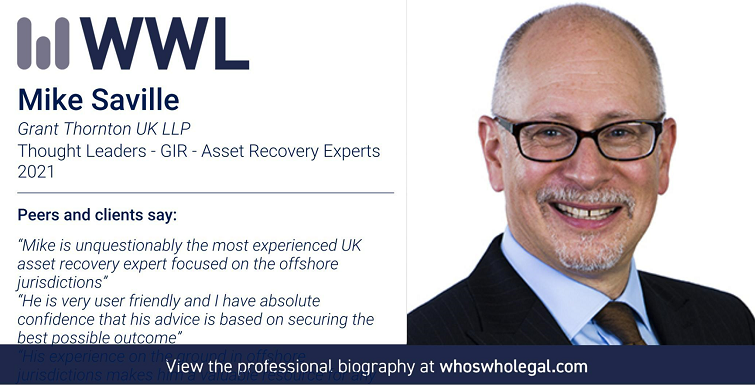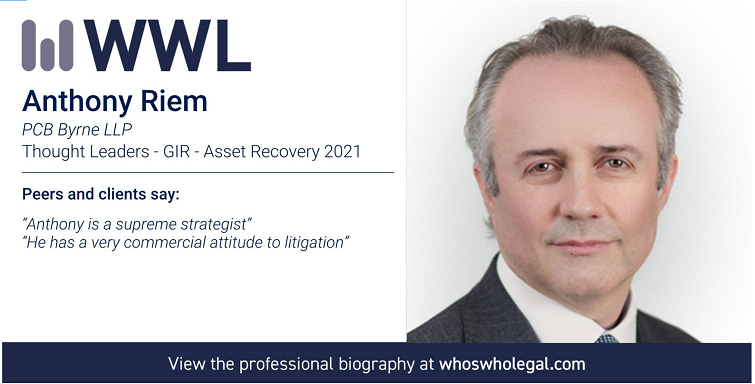From 1 October 2021, the temporary restrictions in Schedule 10 of the Corporate Insolvency and Governance Act 2020 (CIGA) are being replaced[1].
These changes lift the current restrictions on issuing winding up petitions, and replaces them with less stringent and more refined restrictions which are due to remain in place until 31 March 2022.
“Mike is unquestionably the most experienced UK asset recovery expert focused on the offshore jurisdictions” “He is very user friendly and I have absolute confidence that his advice is based on securing the best possible outcome” “His experience on the ground in offshore jurisdictions makes him a valuable resource for any international asset recovery effort”
Questions & Answers
High Court sanctions scheme of arrangement proposed by the Provident Finance group
In our earlier blog, we considered the application to strike out the challenge against the Caffè Nero company voluntary arrangement (“CVA”) (Nero Holdings Ltd v Young) and the rejection of Caffè Nero’s strike-out action by the Court.
The High Court has dismissed an application by a landlord creditor to overturn a company voluntary arrangement (CVA) implemented by coffee shop chain Caffé Nero. The CVA, previously approved by its creditors, compromised rent arrears and reduced future rents for the company's premises. The decision follows a series of previous high-profile challenges to retail and leisure CVAs.
The new month sees a partial re-instatement of the legislation permitting creditors to serve winding up petitions on companies. However, the UK Government has adopted a softly, softly approach; this is seen from the temporary increase in the amount that must be owed from the modest £750 to £10,000 and the requirement for creditors to seek proposals for payment from a debtor business, giving them 21 days for a response, before they can proceed with winding up action. The measures are said to protect small businesses as they seek to rebuild their stability.
In this article we look at current trends and developments at the intersection between insolvency and dispute resolution, including a rundown of some of the latest legislative changes, and issues to consider when litigating against parties in financial distress.
This analysis was first published on Lexis®PSL on 27 September 2021 and is republished with their kind permission.
Corporate Insolvency and Governance Act 2020
Anthony Riem is recognised as “a supreme strategist” by sources who compliment his “very commercial attitude to litigation”.
Questions & Answers
The Government has announced the relaxation of the rules which were put in place in order to restrict the use of winding up petitions during the coronavirus pandemic. The changes, which come into effect on 1 October 2021 and will remain in force until 31 March 2022, are likely to prompt a significant increase in the number of petitions being presented to the court given the ever-increasing level of debt that has accumulated as a result of the pandemic.
As Andrew Jones and Daniela Miklova report, the recent case of Ristorante Limited t/a Bar Massimo v Zurich Insurance plc [2021] EWHC 2538 is a useful insight into how the Court will interpret the questions and answers in insurers’ proposal forms in coverage disputes. It also shows how insurers can lose potential policy defences through the drafting of proposal form questions going wrong.


